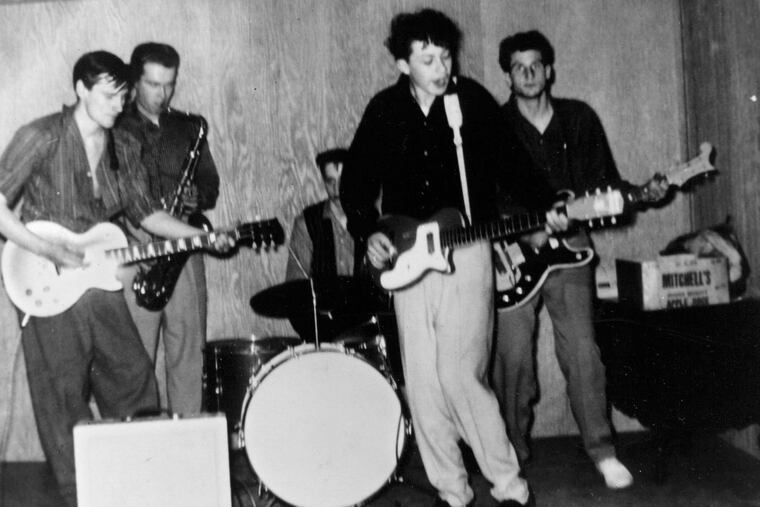Robbie Robertson gives his 'Testimony'
Once described by Bob Dylan as a mathematical genius of a guitar player, Robbie Robertson, head guitarist and songwriter for The Band, writes with a similar geometric ease, accounting for all angles. He has long been a weirdly polarizing figure, celebrated by some as cerebral, derided by others as egotistical, someone who always has to tell you just what he did and why, exactly, it was so darn wonderful.

Reviewed by Colin Fleming
Once described by Bob Dylan as a mathematical genius of a guitar player, Robbie Robertson, head guitarist and songwriter for The Band, writes with a similar geometric ease, accounting for all angles. He has long been a weirdly polarizing figure, celebrated by some as cerebral, derided by others as egotistical, someone who always has to tell you just what he did and why, exactly, it was so darn wonderful.
The popgun objectors can go to town with this memoir, for Robertson presents a detailed and opinionated account of his career, stretching back to the early 1960s as a member of the Hawks, Ronnie Hawkins' backing band.
In the history of rock, there is no finer a secondary unit than these Hawks, who honed their sound in innumerable bars and cutting contests, then took to the concert halls of Europe with Dylan on his 1966 tour that prompted catcalls of "Judas!" from the audience. Ah, the temerity of not playing an entirely acoustic set. Different times, but the Hawks were one bad mother of a band.
There's plenty of rough-and-tumble stuff, so if you like, say, reading about the Beatles' shenanigans in Hamburg, you'll be comfortable here. But there's always a professional streak with Robertson, a need to learn how a particular sound was got, how to become a better guitar player, improve band dynamics, what to do when the singer just didn't have it that day.
These guys could out-rock all comers, which is why Dylan needed them, and it remains startling that they transitioned into The Band, one of the half-dozen best North American groups ever. Bucolic, far-ranging, evocative of the Deep South and the land above the 49th parallel at once, The Band were unlike any other outfit, and this book is the best account of their inner workings. Robertson has no problem telling us when, say, he was on, and Garth Hudson's vocals were off, or Levon Helm wasn't drumming well, but he'll also tell you when the reverse was the case, when he just couldn't get it together and his bandmates carried him through a session or a gig.
The time with Dylan is, of course, a big draw. Who doesn't hope for some lively anecdotes here? Moments after the close of that 1966 tour, Dylan passes out in a tub - stemming from factors mental, physical, and psychotropic - and Robertson rushes in, thinking he'll drown.
But we also see Dylan and his backing mates studying tapes of the gig they just played, in hotel rooms, working out arrangements - analyzing the game film, if you will. This wasn't go-up-on-the-stage-and-blast-away time, but rather deeply focused electric chamber music.
The ad hoc sessions with Dylan at the house forever after known as Big Pink, in Woodstock, with Robertson's acting almost as de facto producer, account for some of the book's liveliest passages. A football is tossed around as a pre-music-making exercise; Dylan and the boys tool around town in a blue station wagon, like high school kids; revelations were wafting in, as well, as the group evolving into The Band was learning to turn down the volume.
"Louder was becoming king, which we had been blamed for in our past," Robertson writes, "but we had evolved to a place where loud music was like greasy food, not really good for you."
A track like "The Weight" - the mighty, mighty "Weight" - was composed by Robertson in an evening's work, as a vehicle for Helm's vocals. The song represents one of the most inspired pairings of composition and singer in all of rock. But who knew Robbie Robertson had a memoir in him to stand up there next to Dylan's Chronicles or Keith Richards' Life?